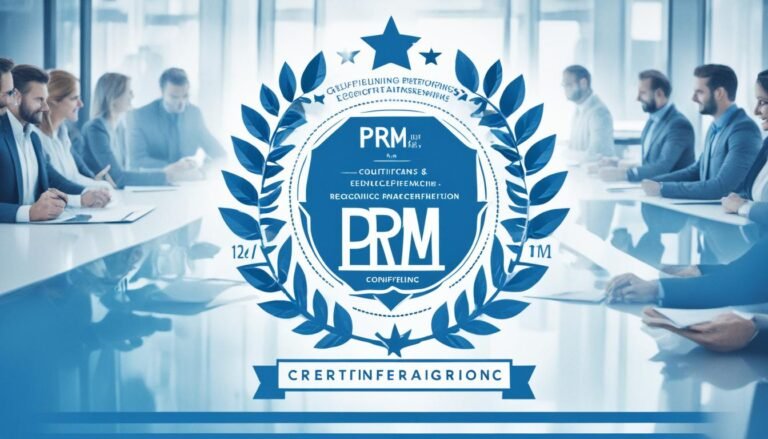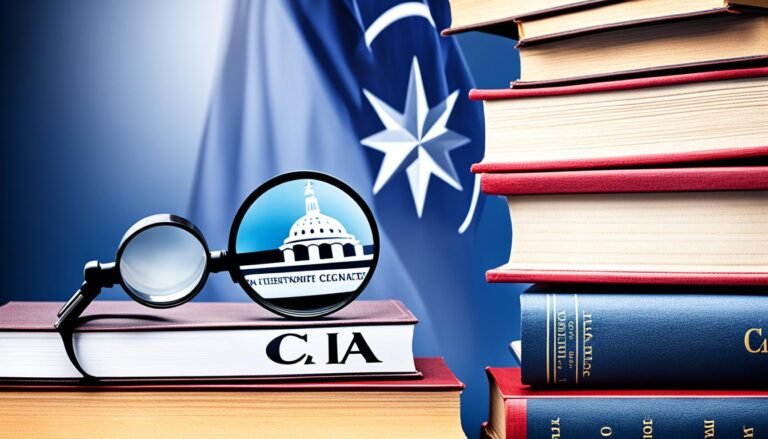Best Master of Science in Finance and Taxation (MSFT) Programs
Did you know that finance jobs will increase by 5% from 2019 to 2029? This will create more than 476,200 job openings. It shows there’s a big chance in finance and taxation, making it a good career for those who love working with numbers and strategy.
Pursuing a Master of Science in Finance and Taxation (MSFT) program can give you the skills you need. These programs have great teachers and connect you with the industry. Graduates learn everything from corporate finance to tax laws and risk analysis.
Key Takeaways:
- Over 476,200 jobs are expected in finance and taxation by 2029.
- A Master of Science in Finance and Taxation (MSFT) gives you skills for different finance jobs.
- These programs make sure you learn a lot from top professionals and connect you with the industry.
- You can work in corporate finance, investment management, tax advising, and risk assessment.
- Choosing an MSFT program leads to a meaningful career in a growing field.
Top Graduate Schools for Finance and Taxation
Choosing the best MSFT program means looking at top graduate schools. These schools are well-known for excellence in finance and taxation education. They prepare students well for their future careers.
They get recognition from industry rankings and experts for their strong programs. Their wide curriculum ensures students learn everything they need about finance and taxation. This way, students gain important knowledge and skills.
The schools’ faculty are also very impressive. Their professors have a lot of real-world experience and academic knowledge. This means students get great advice and insight, helping them do well in their studies.
“Attending a top graduate school for finance and taxation can really change your career. These universities have amazing faculty and resources, giving their students an advantage in the job market.”
Top finance and taxation schools offer more than just great teachers. They also have opportunities for advanced research. This means students can explore their interests deeply and help grow the field’s knowledge.
These schools also have strong ties with the finance and taxation industries. This leads to chances for internships, learning from business pros, and networking opportunities. All this works together to prepare students for their careers.
Being at one of these top schools means being in a really stimulating place for learning. The education, faculty, research, and industry ties they offer truly make them the best for anyone aiming for a career in finance and taxation.
Stay tuned for the next section where we’ll explore the curriculum and specializations offered in MSFT programs.
Curriculum and Specializations in MSFT Programs
MSFT programs dive into finances and taxes deeply. Students learn about micro- and macro-economic theories. They also study corporate finance and international business. This knowledge helps them build strong finance and tax skills for their careers.
Specializations: In MSFT, students can focus on certain finance or tax areas. These specializations let students match their studies to their career plans. Some popular areas to specialize in are:
- Financial Planning: Here, students learn to help both people and businesses with their finances. They study retirement planning, investments, and risk management.
- Investments: This specialization teaches about the financial markets and how to invest wisely. Students look at different investment options and how to manage these investments.
- Environmental Policy: In this area, finance and the environment meet. Students learn about green finance, renewable energy funding, and eco-friendly laws’ financial sides.
- International Finance: This specialization takes finance to a global level. It covers international markets, foreign exchange, and managing money in companies that work worldwide.
MSFT doesn’t just teach in classrooms. Programs might include applying knowledge to real-world finance or tax projects. Or students might do internships. These real experiences help students get ready for their future careers.
Specializations in MSFT Programs
| Specialization | Description |
|---|---|
| Financial Planning | Focuses on comprehensive financial planning services, including retirement planning, investment analysis, estate planning, and risk management. |
| Investments | Provides a deep understanding of financial markets, investment strategies, portfolio management, and investment decision-making. |
| Environmental Policy | Explores the intersection of finance and environmental sustainability, including carbon markets, renewable energy finance, and environmental regulations. |
| International Finance | Focused on finance in a global context, including international financial markets, exchange rates, cross-border transactions, and the financial management of multinational corporations. |
Opportunities for Fintech in MSFT Programs
The finance world is changing fast, and fintech is at the heart of this change. That’s why many Master of Science in Finance and Taxation (MSFT) programs are now focusing on fintech. They want to make sure their students are ready for the fintech job market.
In these MSFT programs, students can choose from a wide range of fintech courses. They learn about blockchain, cryptocurrencies, and how to use machine learning in finance. This helps them keep up with the newest financial trends and technologies.
Benefits of Fintech Education in MSFT Programs
Studying fintech in an MSFT program can give students an edge when they enter the job market. As companies in finance look for experts in fintech, students with this background stand out. They show they’re up-to-date with the industry.
Learning about blockchain and platform strategy can also open up new career paths. For example, knowing about blockchain can lead to jobs in managing digital assets. And understanding fintech platform strategies helps in creating and growing fintech businesses.
Industry Outlook and Collaboration Opportunities
Fintech skills are in high demand and this trend is expected to continue. Because of this, MSFT programs often work closely with businesses. Students benefit from this collaboration through internships, talks from experts, and industry events.
These connections with the industry are essential for a complete education. They ensure that MSFT students not only study but also network with professionals. This makes them well-prepared for leading roles in fintech after they graduate.
| Opportunities for Fintech in MSFT Programs | Benefits of Fintech Education in MSFT Programs | Industry Outlook and Collaboration Opportunities |
|---|---|---|
| Fintech-focused courses | Competitive advantage in the job market | Strong ties with industry partners |
| Blockchain technology | Skills for leadership positions | Internship and guest lecture opportunities |
| Cryptocurrencies | Expertise in emerging technologies | Access to industry events |
| Platform strategy in fintech | Career opportunities in digital asset management | |
| Machine learning in finance |
Flexible Learning Modalities in MSFT Programs
MSFT programs help working professionals by offering flexible learning. They mix online and on-campus classes. This setup is perfect for those balancing work with study.
Online courses let students learn when and where they can. This is a big help for people who work odd hours or travel a lot. It means they can study no matter where they are.
But, being on campus has its own benefits. It lets students talk face-to-face with their teachers and classmates. They can work together on projects and get help right away.
A mix of online and on-campus classes means students can fit studying into their busy lives. It offers the best of both worlds. Students can pick how they want to learn based on what’s best for them.
The Benefits of Flexible Learning Modalities
1. Convenience: Online study means students can learn anytime, anywhere. There’s no more being tied to one place to get an education.
2. Networking Opportunities: On-campus classes help students connect with others in their field. This could lead to new job possibilities or exciting collaborations.
3. Balancing Priorities: Flexible learning helps students juggle work, life, and study. It lets them earn their MSFT degree without giving up other important things.
“MSFT programs let professionals grow their finance and taxation skills without quitting their jobs.”
| Benefits of Flexible Learning Modalities in MSFT Programs |
|---|
| Convenience |
| Networking Opportunities |
| Balancing Priorities |
Admissions and Deadlines for MSFT Programs
Want to join a Master of Science in Finance and Taxation (MSFT) program? You need to know about the admissions process and deadlines. Usually, you have to send in an application, several letters of recommendation, your resume, and your transcripts. Some programs also want your scores from standardized tests like the GRE or GMAT.
It’s wise to look closely at what each program needs. Deadlines for applying can be different, with choices like applying early or at the regular time. Understanding and meeting these deadlines is key to applying well and increasing your chance of getting in.
“The admissions process for MSFT programs involves several components, including application submission and the submission of supporting documents such as recommendation letters, transcripts, and standardized test scores.”
Requirements for MSFT Program Applications:
- Completed application form
- Letters of recommendation
- Resume or CV
- Transcripts from previous academic institutions
- Standardized test scores (GRE or GMAT, if required)
Remember, every MSFT program and university may have different application needs. Make sure to carefully read and do what each program asks for.
Submitting a well-organized application before the deadline can make a big difference. It can really help you get into the MSFT program you want.
Program Duration and Cost of MSFT Programs
When looking into a Master of Science in Finance and Taxation (MSFT) program, it’s vital to know how long it will take and how much it will cost. These factors are different for each university. They help students decide where to study.
An MSFT program might last one to two years. How long it takes depends on if you study full or part-time. Full-time students finish faster, usually within a year. They dive deep into their studies. Part-time students spread their classes out. So, it could take them two years or maybe more.
The price of an MSFT program changes from one place to the next. The cost is affected by how famous the school is, where it’s located, the teachers’ skills, what resources are available, and what you learn. Before choosing a program, it’s smart to think about your money and any help you can get with the costs.
Expensive schools can give you a top-notch education. You might have teachers who are big names in their field. You could also make lots of good contacts for the future. But, there are also good programs at smaller schools that cost less. So, think about what the program offers, not just the price.
Anyone thinking about an MSFT program should do their homework. Look at different schools and what they offer. Consider things like how long it will take, how much it costs, what you’ll study, what the graduates do after, and who the teachers are. This way, you make the best choice for your future.
Average Cost of MSFT Programs at Top Universities
| University | Program Duration | Tuition Cost (per year) |
|---|---|---|
| University A | 1 year (full-time) | $XX,XXX |
| University B | 1.5 years (full-time) | $XX,XXX |
| University C | 2 years (part-time) | $XX,XXX (per year) |
| University D | 1 year (full-time) | $XX,XXX |
Alumni Success and Career Pathways
MSFT program graduates have found great success in fields like finance, accounting, taxation, and consulting. These programs help them become financial analysts, tax consultants, investment managers, and more. The top MSFT programs prepare their students well for the challenges of these industries.
Many universities with MSFT programs offer career help like exploring job paths and making industry connections. With this support, MSFT grads can find good jobs and build their professional networks.
“The MSFT program at [University Name] not only gave me the skills for a finance career but also networking chances. Through university events, I met leaders in the field and got internships that helped me grow.” – [Alumni Name]
Choosing top graduate schools means access to lots of connections and strong networks. These help students find mentors, internships, and job offers after graduation.
Alumni from MSFT programs can show that they do well in finance and tax. Their success shows the quality of the education these programs offer.
Faculty Expertise and Industry Connections in MSFT Programs
In MSFT programs, students learn from top-notch professors. They are experts in finance and taxation. These professors share their real-world and academic knowledge.
Their deep knowledge helps students grasp hard financial and tax concepts. This prepares them well for finance and related jobs.
MSFT universities know the value of industry links. They team up with top firms, finance institutions, and groups.
“Our MSFT program’s industry ties help our students a lot. They lead to internships, talks by pros, and chances to meet employers. It’s a great way for students to step into the finance and tax world.”
– Professor Jane Anderson, Finance Department Chair
These links land students great internships. They get to use what they’ve learned in the real world. Also, talks by experts give a view of what’s happening in finance now.
Universities also host events for students to meet employers and experts. It’s a key time for students to make connections, learn about jobs, and understand the industry better.
| Benefits of Faculty Expertise and Industry Connections in MSFT Programs |
|---|
| Access to seasoned professionals with industry experience |
| Insights and guidance from experts in finance and taxation |
| Internship opportunities in reputable organizations |
| Guest lectures from industry professionals |
| Networking events for engagement with potential employers |
Rankings and Accreditations of MSFT Programs
Ratings and certifications are very important when you’re checking out Master of Science in Finance and Taxation (MSFT) programs. They look at things like the course content, the teachers, how happy students are, and connections with companies. If you’re looking for a top MSFT program, you should check these ratings. They show how good the program is and what others think of it.
One good place to find out about different MSFT degrees is the MSFT degree rankings. This ranking considers how good the teachers are, what they research, how they connect with the real working world, and what their former students have done. It helps students pick wisely.
Rankings are a great way to start when you want to find the best places for your MSFT studies. They tell you what the program is known for, how good the teaching is, and what jobs you might get afterwards.
Other than rankings, you should also look for accreditations in MSFT programs. Being accredited by well-known groups shows the program follows high standards and gives a good education in finance and tax. Look for programs that have the thumbs up from leaders in education like the AACSB or the ACBSP.
Using both rankings and accreditations can help you understand more about MSFT programs. This will help you choose wisely when it’s time to pick a school for your studies.
Global Perspective in MSFT Programs
Getting a Master of Science in Finance and Taxation (MSFT) from leading universities broadens students’ views. It does this by blending classroom lessons with international case studies and expert talks. This mix helps students understand how finance and taxes work worldwide.
Through international case studies, students get to look at real issues from different countries. This helps them see the unique challenges and chances in the global economy. They learn to think globally and handle the world’s economic mix.
Also, guest lectures let students learn from global finance and tax experts. This allows students to pick up tips from people with real-world global finance experience. These sessions cover global trends and new financial practices, adding deep value to students’ learning.
Some MSFT programs even include studying or working on projects abroad. This hands-on experience enriches students’ education by showing them different financial and legal systems up close. It also teaches them how to work with people from different parts of the world.
With this global viewpoint, MSFT grads are ready for finance and tax work without borders. They can excel in jobs at international companies, consulting firms, or global finance groups. Their knowledge and skills match the demands of the global economy.
Benefits of a Global Perspective in MSFT Programs:
- Enhanced understanding of finance and taxation in a global context
- Insights into worldwide market challenges and opportunities
- Learning from global experts through guest lectures
- Hands-on learning through projects and studies abroad
- Improving cross-cultural communication and teamwork skills
- Preparation for jobs in the global economy
Top universities focus on a global perspective in their MSFT programs. They aim to prepare graduates for success in a fast-changing global economy. With the right knowledge and mindset, they are ready to face international finance and tax challenges.
Conclusion
Getting a Master of Science in Finance and Taxation (MSFT) is big for moving up in your career. There are lots of high-ranking programs you can pick from. They’re from famous universities and come with a full set of classes, great teachers, and good connections.
When choosing your MSFT program, think about what you want to do. Pick one that fits your goals; it will help you learn what you need for jobs in finance and tax. You’ll study things like how the economy works, business finance, and global business. You’ll also learn about new things like fintech to be ready for how finance is changing.
People who finish their MSFT do well in jobs like finance, accounting, and consulting. The schools’ groups and job help are there to support you afterward, too. Plus, knowing these programs are highly ranked should make you feel good about choosing one.








